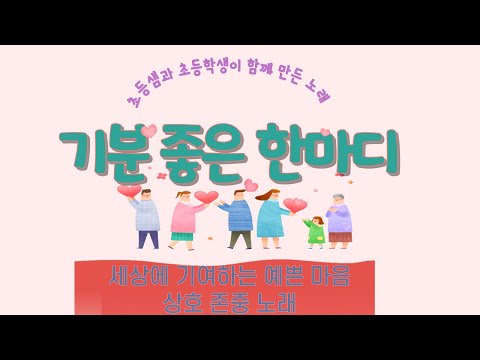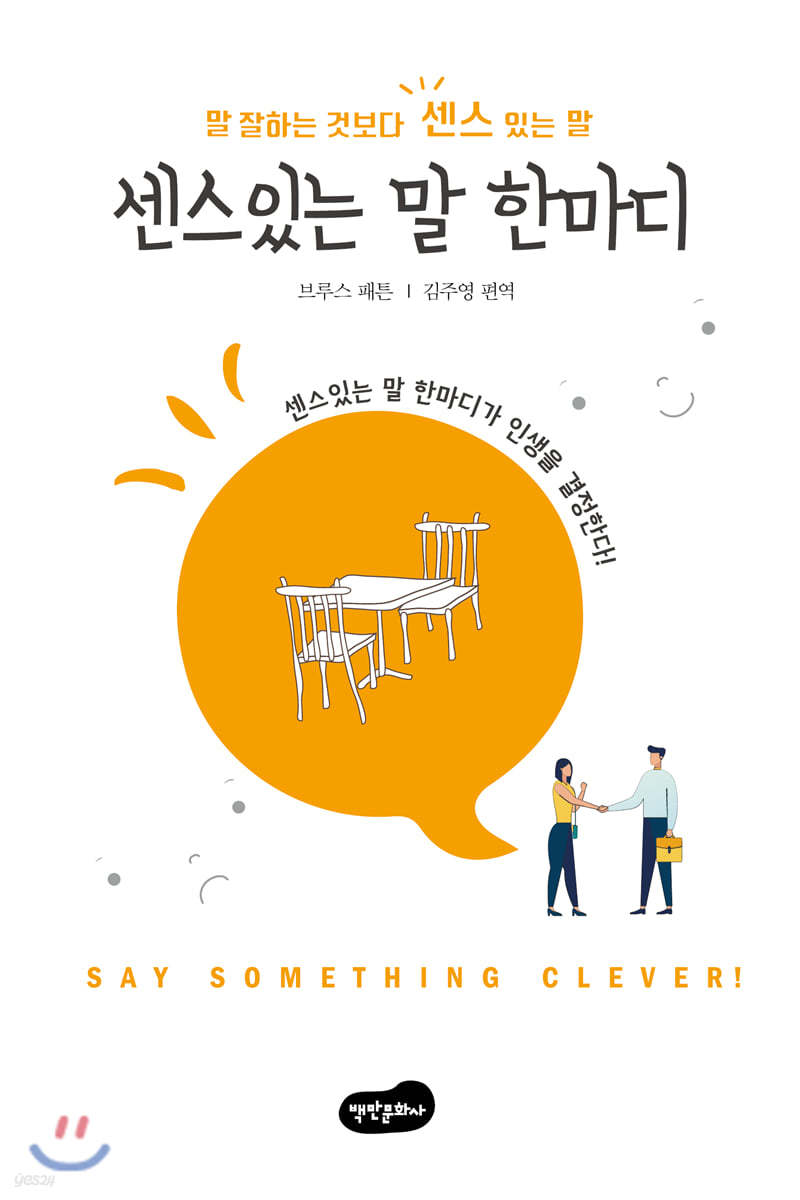기분 좋은 한마디
Throughout our lives, we encounter different situations that require motivation, inspiration, and encouragement. Whether we are facing a difficult challenge, starting a new project, or simply feeling down, a kind and uplifting word can make all the difference.
영감 주는 말 한마디
“Believe you can, and you’re halfway there.”
This quote by Theodore Roosevelt is a powerful reminder that having faith in ourselves is the first step towards achieving our goals. It encourages us to push through our fears and doubts and believe in our abilities to succeed.
자신감을 불러일으키는 한마디
“You’ve got this.”
These three simple words can instill a sense of confidence and self-assurance in anyone. Sometimes, we just need to hear that we are capable of handling whatever comes our way, and that’s exactly what this phrase does.
동기부여를 위한 한마디
“Success is not final, failure is not fatal: It is the courage to continue that counts.”
This quote by Winston Churchill serves as a reminder that setbacks and failures are just bumps in the road on the path to success. It encourages us to never give up and to keep pushing forward.
칭찬으로 인한 기분 좋은 한마디
“I am so proud of you.”
These words of affirmation can make anyone’s day. When someone recognizes our hard work and efforts, it motivates us to continue striving for excellence.
꿈을 이루게 하는 한마디
“Success is not the key to happiness. Happiness is the key to success. If you love what you are doing, you will be successful.”
This quote by Albert Schweitzer reminds us that pursuing our passions and doing what makes us happy is crucial to achieving success and fulfillment.
감동을 주는 한마디
“Be the change you wish to see in the world.”
This quote by Mahatma Gandhi is a powerful call to action that inspires us to take responsibility for creating positive change in our lives and in the world around us.
위로와 격려를 주는 한마디
“It’s okay not to be okay.”
Sometimes, we just need to hear that it’s okay to not have it all together. This phrase provides comfort and reassurance to those who may be struggling and reminds them that they are not alone.
좋은말 모음
In addition to the examples provided above, there are countless other words and phrases that can uplift and inspire us. Here are a few more examples:
– “You are enough.”
– “Never give up.”
– “You have the power to make a difference.”
– “Believe in yourself and all that you are.”
– “You are capable of greatness.”
– “Everything will be okay in the end. If it’s not okay, it’s not the end.”
오늘의 한마디 명언
There are countless quotes and sayings that can provide inspiration and motivation in our daily lives. Here are a few examples:
– “The only way to do great work is to love what you do.” – Steve Jobs
– “I have not failed. I’ve just found 10,000 ways that won’t work.” – Thomas Edison
– “The best way to predict your future is to create it.” – Abraham Lincoln
– “Believe you can and you’re halfway there.” – Theodore Roosevelt
– “Success is not final, failure is not fatal: It is the courage to continue that counts.” – Winston Churchill
가장 힘이 되는 말
The most powerful words are often the ones that resonate with us on a personal level. It could be a simple phrase like “you’ve got this” or a longer quote that speaks to our soul. The key is to find the words that inspire and motivate you, and to keep them close as a source of strength and encouragement.
기분 좋은 한마디 can lift our spirits, motivate us, and empower us to dream bigger and achieve more. Whether it’s a compliment, a quote, or a few words of encouragement, a kind and uplifting word can make all the difference in our lives. Take the time to find the words that inspire and empower you, and keep them close as a source of strength and motivation.
사용자가 검색한 키워드: 기분 좋은 한마디 기분 좋은 말, 힘이되는 한마디, 짧고 멋진말, 멋진 말 한마디, 좋은말 모음, 좋은 말 한마디, 오늘의 한마디 명언, 가장 힘이 되는 말
Categories: Top 49 기분 좋은 한마디
기분 좋은 작은 한마디 | 초등샘과 6학년 학생들이 함께 만든 노래
여기에서 자세히 보기: future-user.com
기분 좋은 말
The power of positive language is not just limited to Korean culture. Across the world, people recognize the impact that words can have on mood and mental well-being. The phrase “kind words cost nothing” reflects the idea that just a few simple words can make someone’s day and have a positive ripple effect.
In Korea, the importance of 기분 좋은 말 is deeply ingrained in society and has been for centuries. Traditionally, Confucianism, which emphasizes relationships, family values, and respect for elders, placed great emphasis on using language effectively and respectfully. Words were seen as powerful tools that could either harm or help relationships. Today, as Korea becomes more westernized, this traditional emphasis on language remains strong, and people continue to value words that uplift and empower.
Examples of 기분 좋은 말 include compliments on appearance, achievements, competence, and personality traits like kindness, thoughtfulness, and intelligence. Expressions of gratitude, love, and appreciation are also powerful gibun joh-eun mal. Any statement or gesture that makes someone feel valued and cared for can be considered 기분 좋은 말.
However, it is not just the content of the words that matters but also the way in which they are spoken. Tone of voice, facial expressions, and body language can all enhance or detract from the impact of gibun joh-eun mal. A sincere smile, warm eye contact, and a gentle touch can all amplify the power of kind words.
The benefits of 기분 좋은 말 are numerous and well-documented. Positive language has been shown to improve mental health, reduce stress levels, and increase resilience to negative events. The emotional high created by kind words can also enhance social connections, improve relationships, and boost confidence.
As well as benefiting the recipient of gibun joh-eun mal, it also offers an opportunity for the speaker to create a positive and compassionate world. By choosing to use kind words, we can create a culture of positivity and empathy that can uplift all those around us.
One of the challenges of using gibun joh-eun mal is knowing how to use it effectively. Some people might worry that they are not good at expressing themselves, or that their words might come across as insincere. Others might be afraid of rejection or embarrassment if their words are not well received.
Fortunately, there are strategies that can help you become better at using gibun joh-eun mal:
1. Focus on the other person: Try to put yourself in the other person’s shoes and think about the impact your words might have on them. Ask yourself, “what would make me feel good if someone said this to me?” Speak from the heart, focusing on expressing genuine appreciation, admiration, or affection.
2. Practice active listening: Pay attention to the other person’s body language and nonverbal cues as you speak. This will help you adjust your tone and content to match their needs and preferences. Listening actively also shows that you value the other person’s attention.
3. Start small: If you are new to using gibun joh-eun mal, start by giving simple compliments or expressions of thanks. This will help you get more comfortable and build momentum towards more significant compliments or more complex expressions of appreciation.
4. Be specific: General compliments like “you’re great” or “you’re amazing” might feel nice, but specific compliments that highlight particular skills, traits, or actions are more powerful. For instance, “I appreciate the way you helped me when I was feeling down” or “I’m proud of you for the hard work you put in on this project.”
5. Make it a habit: The more you practice using gibun joh-eun mal, the easier it will become. Try to make kindness and empathy a fundamental part of your interactions with others and watch as it transforms the quality of your relationships and your life.
Frequently Asked Questions about 기분 좋은 말
Q: Are there any cultural norms or taboos to be aware of when using gibun joh-eun mal in Korea?
A: Yes, there are some cultural nuances to be aware of. For example, in traditional Korean culture, it is considered inappropriate to give compliments that are too direct or effusive, as this can be seen as immodest or boastful. It is also common to use polite language when speaking with elders or those in positions of authority.
Q: Is it possible to use gibun joh-eun mal in business or professional settings?
A: Yes, using kind words is appropriate in all settings, including business or professional contexts. However, it is important to be aware of cultural norms and expectations, as well as any power dynamics that might affect how your words are received.
Q: What are some examples of gibun joh-eun mal that might be particularly meaningful to someone struggling with mental health issues or emotional difficulties?
A: Kind words that show empathy, compassion, and support can be especially powerful to those experiencing mental health issues. Expressing appreciation for their courage, their effort, or their progress can also be helpful. Simple statements like “I’m here for you,” “you are not alone,” or “I believe in you” can make a significant difference in someone’s emotional state.
Q: What can I do if I don’t receive gibun joh-eun mal from my friends or family members?
A: Not receiving compliments or kind words can be disappointing and discouraging. However, it is important to remember that everyone has their own communication style and might express their affection or support in different ways. If you feel like you need more gibun joh-eun mal in your life, try reaching out to others and expressing your own appreciation for them. This often helps initiate a positive feedback loop of kindness and optimism.
힘이되는 한마디
“힘이되는 한마디”는 일반적으로 우리의 에너지를 고취시키고, 우리의 마음을 강화시키는 긍정적인 문구입니다. 이런 문구는 우리의 태도를 변화시켜주며, 우리의 지속적인 진전과 성장을 위한 도구로 활용될 수 있습니다.
우리는 많은 경우에 “힘이되는 한마디”를 필요로 합니다. 어떤 경우에는 우리가 적극적으로 창조적인 분야에 진입할 수 있도록 강력하게 강조하여 우리를 독려할 필요가 있습니다. 다른 경우에는 우리가 우리 자신을 위해 일이나 계획을 시작하거나 잠재적인 hindrance에 대히해 벽을 넘는데 도움을 주는 한마디가 필요합니다.
“힘이되는 한마디”를 사용하는 가장 좋은 방법은 우리 자신이 직접 만들어낸 것입니다. 우리 자신이 자신이 원하는 것을 무엇이든지 확인하고, 그것의 진정한 의미를 이해한다면 우리의 방식으로 구사하는 한마디가 생각보다 매우 힘이 됩니다.
우리는 또한 다른 사람들이 만든 “힘이되는 한마디”를 찾아서 재창조 할 수 있습니다. 성명서나 광고, 노래가사, 명언, 슬로건 등 갑갑한 상황에서 우리를 위한 말들이 지속적인 힘을 발휘할 수 있습니다.
“힘이되는 한마디”의 목적은 우리가 살면서 어려운 일을 마주할 때 용기를 주는 것입니다. 그러나 이러한 문구는 단순히 어려운 시간들에만 적용되지 않습니다. 우리는 또한 우리 자신을 계속해서 양극성, 불안, 불안정성 또는 우울증의 감정들로부터 떨어뜨리게 만드는 데에도 적용할 수 있습니다. “힘이되는 한마디”는 건강한 생활과 긍정적인 태도를 유지하는 데 탁월한 방법입니다.
자기 개발에서 목읍적이고 순간적으로 그렇지 않다면, 성찰적점 또는 대성적인 출처를 참고하는 것은 굉장히 도움이 될 수 있습니다. 명예의 전당, 인터뷰 코드 또는 세미나 및 전문가 강연 등 다양한 출처에서 원하는 조언을 찾을 수 있습니다. 창조함, 지각 또는 발견을 통해 우리 자신의 한마디를 만드는 것은 매우 흥미롭습니다. 이것은 당신이 미래를 강하게 유지하고 성장할 수 있도록 해줄 것입니다.
하지만 “힘이되는 한마디”를 찾는 것은 그렇게 쉬운 일이 아닙니다. 때로는 우리가 더 힘이 빠져서, 이시간에 그저 쉬고 싶을 때 발견된 글귀를 읽곤 합니다. 명언집에서 문구들을 찾아서 복사해서 붙여넣기 할 수도 있죠. 하지만 그렇게서 나오는 결과에는 그 어떤 의미도 없을 수 있습니다. 우리에게 초점을 맞춘, 우리 자신과의 조화를 이루는 문구를 찾아 보세요.
FAQ
Q: “힘이되는 한마디”를 찾을 때 어떤 문제가 발생할 수 있을까요?
A: “힘이되는 한마디”를 찾는 것은 쉽지 않은 일입니다. 당신의 필요와 목표를 이해하는 것이 가장 중요합니다. 우리 자신에 대한 이해도 증진시키는 과정이 될 수 있습니다.
Q: “힘이되는 한마디”를 만드는 것은 어떻게할까요?
A: 창조적인 활동을 하는 동안 당신은 당신 자신에 대하여 더욱 많이 배우게 됩니다. 우리는 우리 자신에 대해 잘못된 가정과 오해를 가지기 마련입니다. 여러분이 당신의 진정한 자아를 탐구한다면, 그것 자체로도 “힘이 되는 한 마디”가 될 수 있습니다.
Q: “힘이되는 한마디”를 찾기 위한 가장 좋은 방법은 무엇인가요?
A: 우리는 각자 해야 할 일, 이룰 목표, 전달해야 할 정보, 자신만의 이유와 목적을 가지고 있습니다. 당신의 가장 큰 필요와 목표를 이해해 보세요. 그러한 핵심을 알고나면 다양한 출처들에서 다양한 조언과 정보를 얻을 수 있습니다.
짧고 멋진말
The History of 짧고 멋진말
The concept of 짧고 멋진말 can be traced back to traditional Korean proverbs and idioms that date back hundreds of years. These proverbs were passed down from generation to generation and were often used to teach important life lessons and values. Over time, these proverbs evolved into shorter and more concise sayings that could be easily remembered and used in everyday conversation.
In recent years, the popularity of social media has further fueled the popularity of 짧고 멋진말. Short and catchy phrases are highly shareable on social media platforms like Instagram and Twitter, making them a powerful tool for influencers and businesses to communicate with their audience.
The Significance of 짧고 멋진말 in Korean Culture
In Korean culture, 짧고 멋진말 is highly valued for its ability to capture the essence of an idea or emotion in a few concise words. Koreans are known for their love of language and the art of expression, and 짧고 멋진말 reflects this appreciation for the power of words.
Korean proverbs and idioms are still widely used today, and many of them have become ingrained in everyday Korean language. For example, “fall seven times, stand up eight” is a popular Korean proverb that shows the importance of resilience and determination. “A rolling stone gathers no moss” is another example of a Korean proverb that encourages people to stay focused and avoid distraction.
짧고 멋진말 is also commonly used in Korean music, movies, and television shows. Many Korean pop songs and dramas feature memorable one-liners and catchy phrases that become instantly recognizable for their emotional impact and relatability.
Examples of 짧고 멋진말
Here are some examples of popular 짧고 멋진말 in Korean:
• 새해 복 많이 받으세요 (sae-hae bok man-i ba-deu-se-yo) – This phrase is often used to wish someone a happy new year.
• 운 좋게도 (un jo-ge-do) – This phrase means “luckily” or “fortunately.”
• 인생은 살다보면 (in-saeng-eun sal-da-bo-myeon) – This phrase means “life is unpredictable” or “things happen in life.”
• 사랑은 아무나 하지 않는다 (sa-rang-eun a-mu-na ha-ji an-neun-da) – This phrase means “love is not something that can be given to anyone.”
• 좋은 곳에서 만나요 (jo-eun got-e-seo man-na-yo) – This phrase is often used as a farewell, meaning “see you in a good place.”
Benefits of Using 짧고 멋진말
Using 짧고 멋진말 has many benefits, both personally and professionally. For individuals, using memorable phrases and sayings can help them express their thoughts and emotions more effectively. It can also help them build stronger relationships by connecting with others on a deeper level.
For businesses, using 짧고 멋진말 can be a powerful marketing tool. Catchy slogans and one-liners can help businesses stand out in a crowded market and create a memorable brand identity. Effective communication is a crucial part of building strong relationships with customers and clients, and 짧고 멋진말 can help businesses achieve that goal.
FAQs
Q. What is the meaning of 짧고 멋진말?
A. 짧고 멋진말 means “short and cool words” in Korean.
Q. What is the significance of 짧고 멋진말 in Korean culture?
A. 짧고 멋진말 is highly valued in Korean culture for its ability to capture the essence of an idea or emotion in a few concise words. It reflects the Korean appreciation for the power of language and expression.
Q. What are some examples of 짧고 멋진말?
A. Some popular examples of 짧고 멋진말 in Korean include “새해 복 많이 받으세요” (sae-hae bok man-i ba-deu-se-yo), “운 좋게도” (un jo-ge-do), and “인생은 살다보면” (in-saeng-eun sal-da-bo-myeon).
In conclusion, 짧고 멋진말 is a powerful linguistic tool in Korean culture that reflects the people’s appreciation for the power of language and expression. Whether in everyday conversation or in business marketing, using memorable phrases and sayings can help individuals and businesses communicate effectively and connect with others on a deeper level.
주제와 관련된 이미지 기분 좋은 한마디

기분 좋은 한마디 주제와 관련된 이미지 40개를 찾았습니다.





![왕눈이님의 서재] 왕눈이님의 서재]](https://image.yes24.com/blogimage/blog/h/y/hyunho0305/IMG_20190704_050827.jpg)
![대화는 즐거워] 기분 좋은 말을 해봅시다(feat.예쁜말) - YouTube 대화는 즐거워] 기분 좋은 말을 해봅시다(Feat.예쁜말) - Youtube](https://i.ytimg.com/vi/cjxo8F0ahr8/maxresdefault.jpg)
![주가 수익률 공식에 숨겨진 비밀 [최준철의 같이 하는 가치투자] 주가 수익률 공식에 숨겨진 비밀 [최준철의 같이 하는 가치투자]](https://img.hankyung.com/photo/202108/99.27353847.1.jpg)

![매일매일 중국어 한마디] 개의치 마세요 매일매일 중국어 한마디] 개의치 마세요](https://img1.daumcdn.net/thumb/R658x0.q70/?fname=http://t1.daumcdn.net/news/201704/10/chosun/20170410030651153cxmo.jpg)
![알라딘서재][책추천] 50센티 더 가까워지는 선물보다 좋은 말노구치 사토시 | 밀리언서재 알라딘서재][책추천] 50센티 더 가까워지는 선물보다 좋은 말노구치 사토시 | 밀리언서재](https://image.yes24.com/blogimage/blog/v/o/vogue123/temp/IMG_2_160.jpg)
![이벤트] 나만의 의미있는 복권 당첨 버킷리스트는? : 네이버 포스트 이벤트] 나만의 의미있는 복권 당첨 버킷리스트는? : 네이버 포스트](https://post-phinf.pstatic.net/MjAyMzAyMDdfMTE4/MDAxNjc1NzI2NjkzODEz.6u1Ke9L_xGGT4RWUEtA30LgIldztruZN128C7Y_TksMg.OJBe-5qnQxBR4rpx6KsjvoB1ep6qS_eklgGEndBSD4wg.JPEG/%EC%9D%B4%EB%B2%A4%ED%8A%B8_%EC%83%81%EB%8B%A8.jpg?type=w1200)

![아름다운재단 - [꾸준함이 만드는 기분좋은 변화 vol.1] 버스기사님께 인사하기 아름다운재단 - [꾸준함이 만드는 기분좋은 변화 Vol.1] 버스기사님께 인사하기](https://beautifulfund.org/wp-content/uploads/2016/06/cfile7.uf_.270D5F3355069CB311B07E.jpg)
Article link: 기분 좋은 한마디.
주제에 대해 자세히 알아보기 기분 좋은 한마디.
- 좋은글모음 기분 좋은 말 한마디 – 즐거운 미투데이…
- 기분 좋은 한마디 – 사랑하는 사람들 – 티스토리
- 따뜻한 말 한마디 – 🔶️공유 글 나눔 – 산야와 한 울타리
- 기분좋은말한마디운동본부 – Facebook
- 기분좋은 말 한마디 – 검색결과 – 쇼핑하우
- 상대를 기분좋게 해주는 말한마디 – 네이버 블로그
- 기분 좋은 말 – 한마디 – 벅스
- 세상에서 가장 기분 좋은사람 > 좋은글 | 군위넷
- 한마디면 충분하다 – Kết quả Tìm kiếm Sách của Google
더보기: future-user.com/wki